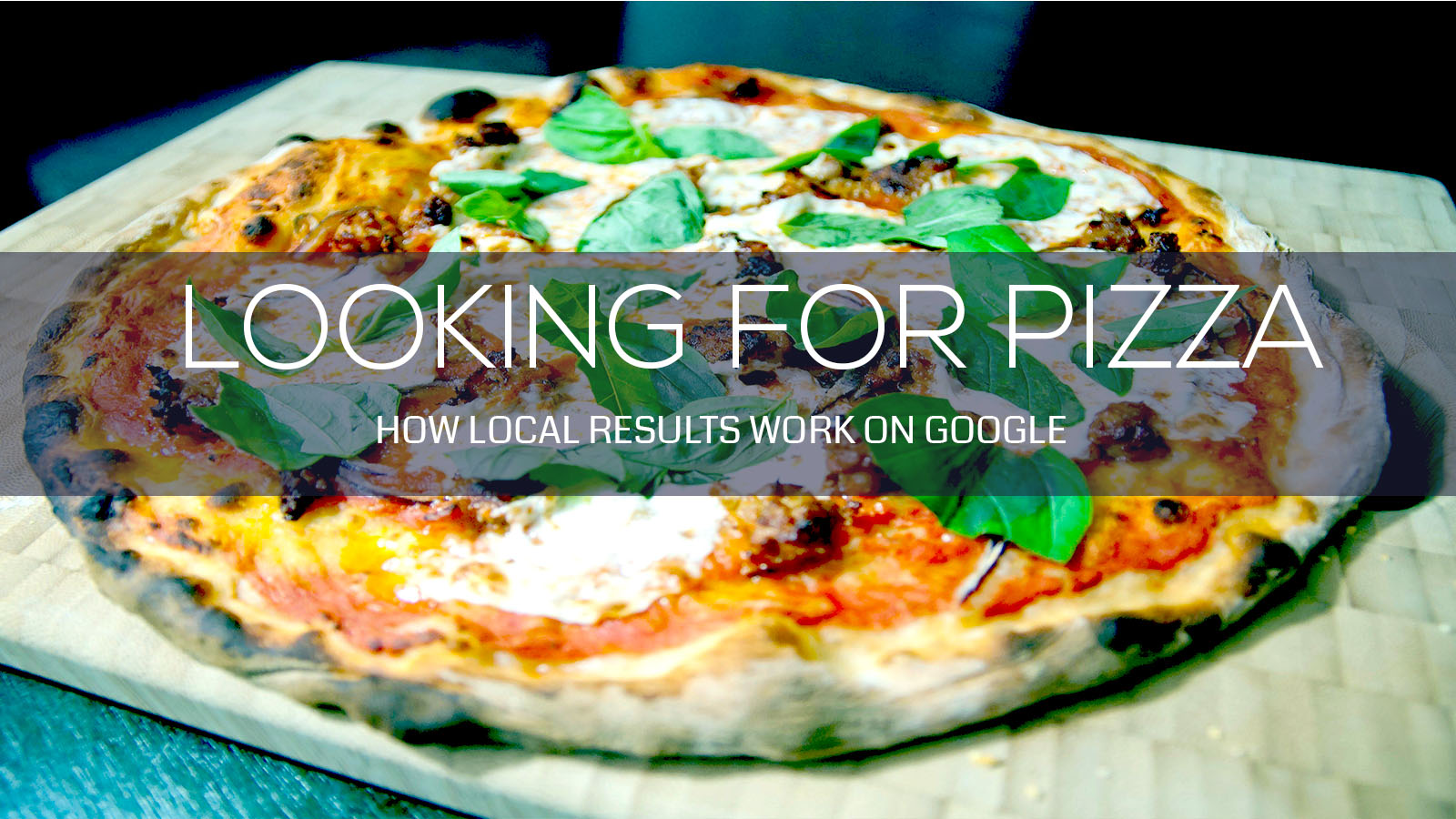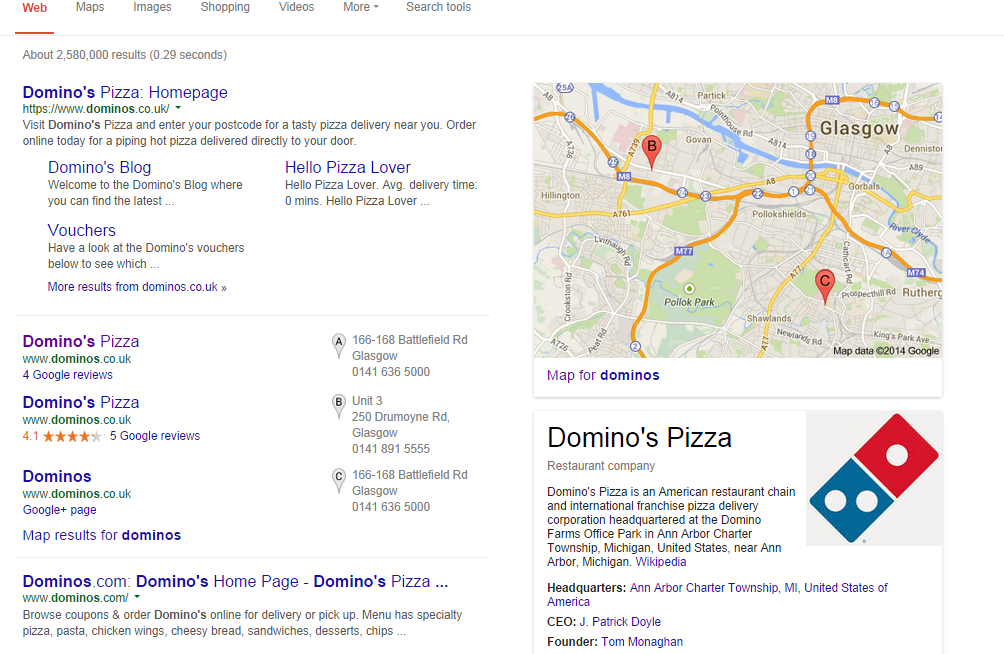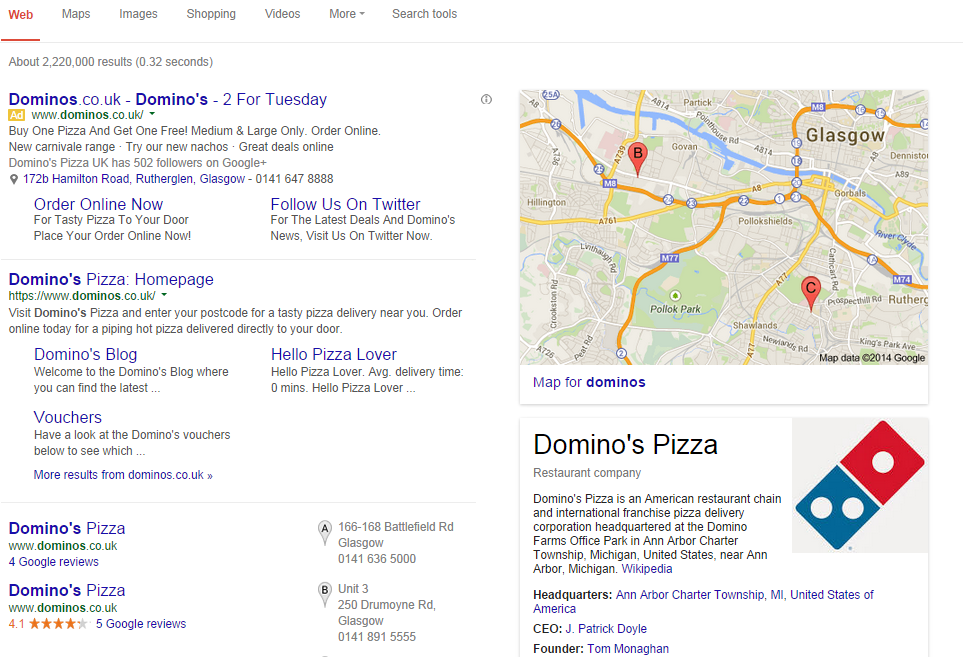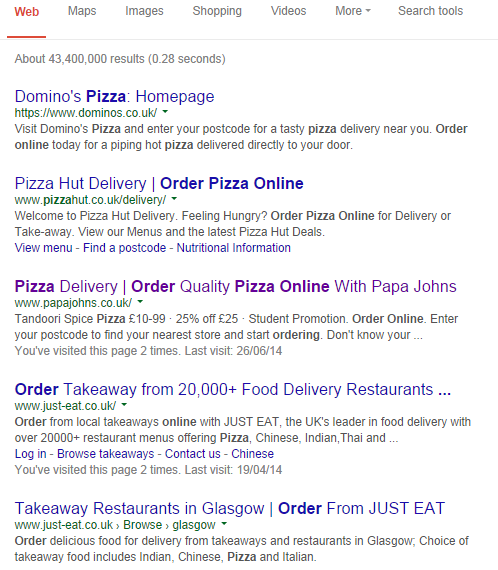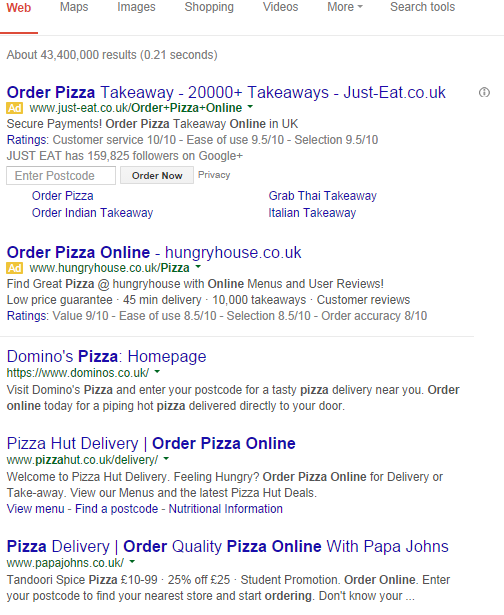It’s one of the biggest stumbling blocks people come across whenever we try to explain the difference in the types of results Google can provide you with: the difference between what an organic and local link is. Last week we mentioned a really good presentation we saw at Brighton SEO about how to make sure a localised result works in your favour, but unless you know exactly what one is, how can you understand how to optimise it? There’s one simple way to best explain a local result and it involves looking for pizza.
Here’s what to do. Open a tab and search the term ‘dominos’. You would be expecting to find a mixture of pages explaining what domino pieces are on Wikipedia and maybe a few results pointing towards very tasty pizza. That won’t be the case. The entire first page will be nothing but results guiding your towards ordering all the stuffed crust imaginable and those related results at the bottom of the page should all be related to finding vouchers, codes and ways to order Dominos too. Why is this the case? Because the result should be, and more than likely will be, locally focussed. The two images below are a great indicator of this.
In Exhibit A, I searched for ‘dominos’ while signed into Chrome. Because of where I’m located and the way in which I use Google the result given back to me was personalised. The best indicators of this personalisation are the fact that there are no ads (I never click on top listed Ads out of habit) and I use maps a lot to find places around Glasgow.
In Exhibit B, I opened an incognito tab (if you don’t know how to do that in Chrome its Ctrl+Shift+N) and searched ‘dominos’ again. I could’ve switched my IP address to another location but didn’t just so I could show the subtle differences that Google provides. Because I wasn’t signed into any account, the top result is a listed ad with the address of my nearest Dominos; the main site’s homepage sits underneath as the 1st organic result just in case.
Now here are a few things to focus on when comparing the pages. Exhibit A lists the site’s blog and on-site voucher page as sub pages to click through to as it is trying to personalise the result rather than go for a hard sell. Exhibit B is more direct in trying to get to me to interact, telling me to ‘Order Online Now’ and ‘Follow Us on Twitter’. Why is this the case? Because it is a targeted ad. Notice too how the title I’ve been shown in B says ‘2 for Tuesday’. The webpage doesn’t have this page title, but the ad I’m being shown is targeted to me for this time and date and shown accordingly (I’m writing this on a Tuesday). It’s trying to be as local and tailored to my needs as possible and because I’ve used specific brand terms, even if it is grammatically wrong, the result will be locally tailored.
So what happens if I want to order pizza right now from this seat and don’t know what company to choose? Well the wonderful world of organic results will give you a chance to compare. I entered the term ‘order pizza online’. It’s a very popular and competitive term with over 1000 searches per month. Here is what my SERP looks like when logged in to Chrome:
And here is what the same result looks like when not logged in:
The three big brands dominate the top search results on both pages organically, but the ads placed in the second example are trying to tap into that missing local link by trying to get me, the user, to enter a postcode. Once it knows where I am, I’ll then be provided with localised results. But because I’ve been vague when giving across information and potentially don’t know what type of pizza I want, the comparison sites are aiming to draw my attention as an undecided customer by giving me the choice of over 20,000 takeaways. Now there aren’t 20,000 pizza places in Glasgow, but planting that idea in my head from an originally organic thought is something that helps to define the difference in what is a local result and what is an organic result i.e. looking for something nearby instead of looking for something and then realising its nearby.
And if there is one takeaway from all of this, it’s that searching so much about pizza can drive a man desperate with hunger.
If you need to know more about local listings, or are trying to get your site optimised for local results, feel free to get in touch with us.

